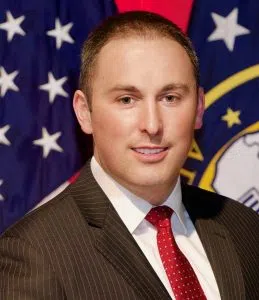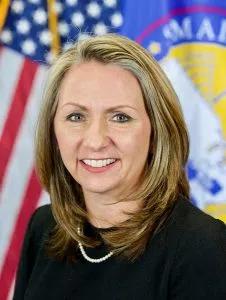The following was written by Small Business Administration Director of Rural Affairs Dan Nordberg and SBA District Director for South Dakota Jaime Wood.


Small business owners are some of the strongest, most resilient people you will ever meet. They know what it’s like to take risks, work hard, make tough decisions, and turn a profit to benefit their community.
The last few months have been arduous for South Dakota’s rural small business owners and entrepreneurs. Yet once again, we’ve seen that in times of crisis, small businesses step up to provide for their employees and serve their hometowns.
At the Small Business Administration, we have made it our frontline mission to support small businesses in South Dakota as they work to find new and unique ways to serve their communities. This mission was especially aided by the Paycheck Protection Program (PPP) – a lifeline that kept people on payroll, kept businesses in businesses, and reduced the negative impact of public health closures on local economies. Since this program was launched, over $525 billion in emergency relief funding was awarded to 5.2 million small businesses, non-profits, agriculture producers, and operations in nearly every sector. More than 15 percent of the program’s total funds went to businesses in rural communities, too, saving countless jobs and channeling millions of dollars into main streets and hometown economies.
Over the last few months, we have talked with countless small business owners who told us that the PPP was just the lifeline they needed to survive. We’ve been beyond impressed at how these businesses have not only used the proceeds to pay their employees, but have creatively served their communities amidst this trying time.
Take Kennebec Telephone Company, for example. Located in Kennebec – population 250 – Rod Bowar and his family have provided high-speed internet access to their region for more than 22 years. When COVID-19 amplified the need for broadband services, he knew he needed all hands on deck to continue providing this essential service. Since several of his employees are immunocompromised, Bowar purchased used campers, renovated them, and rented spaces at the local campground to provide individual working spaces that kept his staff healthy and able to work safely. With his payroll expenses covered by an SBA PPP loan, he was able to retain all 54 employees and allocate additional resources to people who didn’t previously have an internet connection – especially students who were trying to go to school online and people teleworking for the first time.
South Dakota’s medical community was affected by the pandemic, too. Earlier this year, Dr. Jason Aanenson of Freeman Parkston Dental Center made the decision to postpone non-urgent dental care out of an abundance of caution for patients, staff, and providers, while also following CDC guidelines. As one of only two dental providers in Freeman – population 1,292 – Aanenson knew it was the right decision, but one that could have an impact on their bottom line. Through his longstanding relationship with his local bank, Dr. Aanenson received a PPP loan that empowered him to keep his business viable, retain his employees, and continue serving the people of southeast South Dakota.
There’s no doubt that times are still tough. Uncertainty continues to pose a significant challenge to small businesses everywhere. Together, though, we’ll continue using every available resource to help business and entrepreneurs pursue their American Dream. To learn more about SBA programs for rural small businesses, visit sba.gov/rural.







Comments